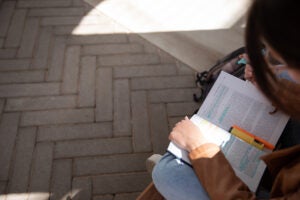AUSTIN, Texas –Amid the serene landscape at the southern boundary of the scenic Hill Country, about 15 miles west of Devine, Texas, in Medina County, lies a group of deep and shallow wells on an expanse of land that, along with the test data gathered at the site, is valued at nearly $1 million.
This stretch of land, known as the Devine Test Site, the wells and all the experimental data amassed by British Petroleum (BP) over 12 years of research, are being donated by BP to UT Austin. The 100-acre test site, which will be managed by UT’s Bureau of Economic Geology, will become a public-access field research laboratory dedicated to the development of geoscience technology.
The Devine Test Site is an ideal setting for researchers and industry to test new equipment and to conduct geophysical experiments in a remarkably stable environment.
The site contains three 3,000-foot wells suitable for experimentation and downhole instrument testing and another four shallow wells, penetrating less than 200 feet, cased and completed to give a consistent environment for borehole instrumentation.
Permanent concrete and gravel pads that ensure consistent earth coupling for surface-based seismic vibrators in all weather conditions are appropriately positioned on the property. In addition to having new testing opportunities at the site, researchers will be able to review extensive data already gathered at the site by BP. The historical data will be housed in a room dedicated to the site at the Bureau’s Exploration Geophysics Laboratory at UT’s J. J. Pickle Research Campus in north Austin.
Visitors will be able to study the data at the Bureau, and the holdings will eventually be cataloged and posted on a Web site developed by the Exploration Geophysics Laboratory. Plans also are under way to acquire surface-access rights to an additional 400 acres surrounding the test-well property, allowing a wider variety of geophysical testing to be done at the site.
Requests for more information about access to the test site and data should be made through Noel Tyler, director, Bureau of Economic Geology (512/471-1534).



